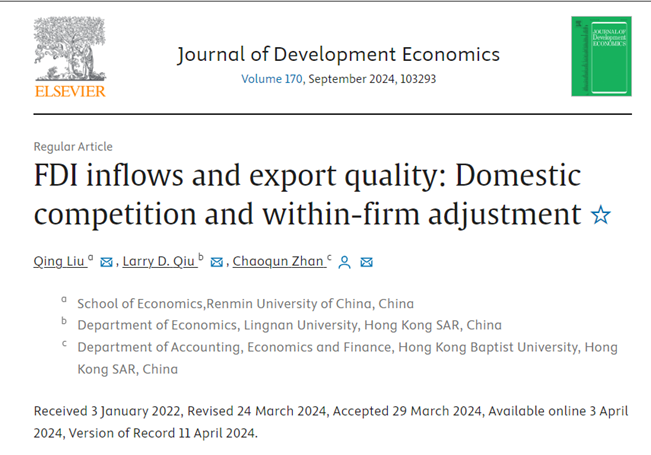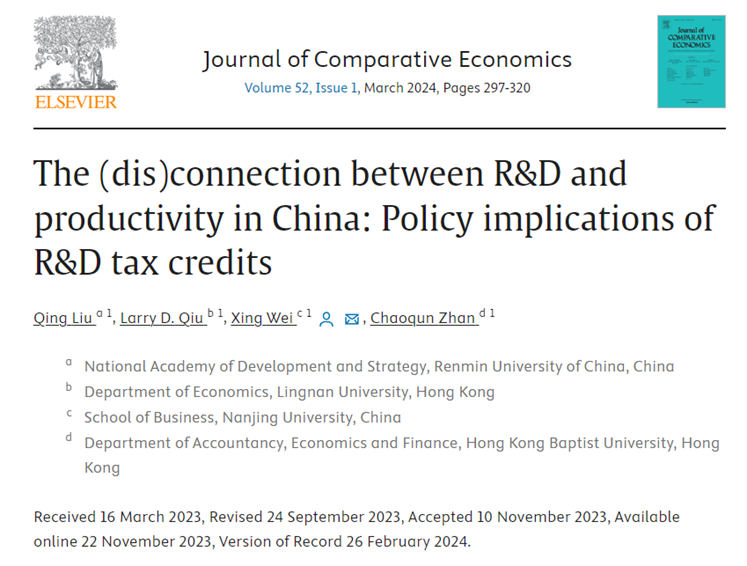 Research Update
Research Update
18
AprilRecently, Liu Qing, Deputy Dean of National Academy of Development and Strategy and professor at the School of Economics at Renmin University of China, published collaborative papers in the Journal of Development Economics, a top journal of development economics, and the Journal of Comparative Economics, a top journal of comparative economics:

1. Liu Qing, Larry Qiu and Chaoqun Zhan. FDI Inflows and Export Quality: Domestic Competition and Within-firm Adjustment. Journal of Development Economics, 2024, Volume 170, 103293.
Abstract:
Product quality is widely regarded as an important determinant for economic development. This paper investigates whether horizontal foreign direct investment (FDI) improves or deteriorates the quality of domestic firms' exports. We use China's FDI regulation changes in 2002 as an instrument variable (IV) for FDI penetration in China to identify the causal impact and introduce a theoretical model to rationalize our empirical work. We find that FDI inflows exert a significantly negative effect on Chinese firms' export quality. The mechanism of the negative effect is that FDI intensifies the domestic market competition, which induces within-firm adjustment of product mix and lowers domestic firms' incentive to invest in the quality of new products. In particular, while domestic firms drop some existing products and introduce new products, they invest less in the quality of new products and maintain the quality of continuing products.

2. Liu Qing, Larry Qiu, Xing Wei and Chaoqun Zhan.The (Dis)Connection between R&D and Productivity in China: Policy Implications of R&D Tax Credits. Journal of Comparative Economics, 2024 (52), 297-320.
Abstract:
We use Chinese firm-level data from 2001 to 2007 to estimate the (dis)connection between firms’ R&D and productivity and find that the productivity effect of R&D investment is very low. We conjecture that firms conduct/report unproductive R&D in order to obtain policy benefits. To explore this plausible misconduct, we investigate the effects of China's 2003 R&D tax reform on firms’ R&D investment. The reform generates exogenous treatment variations across firm ownerships for causal identification. We find that the reform has statistically significant and positive effects on firms’ R&D investments. Quantitatively, the reform raises firms’ R&D investments by 6.68 % and the estimated R&D elasticity of tax deduction for private firms is 0.9147, which is comparable to other countries. However, our further empirical results indicate that the policy-induced R&D is less efficient in promoting firms’ productivity than the spontaneous R&D. We provide evidence of firms’ relabeling non-R&D expenses to R&D expenses, which partly explains the inefficiency of R&D investment.